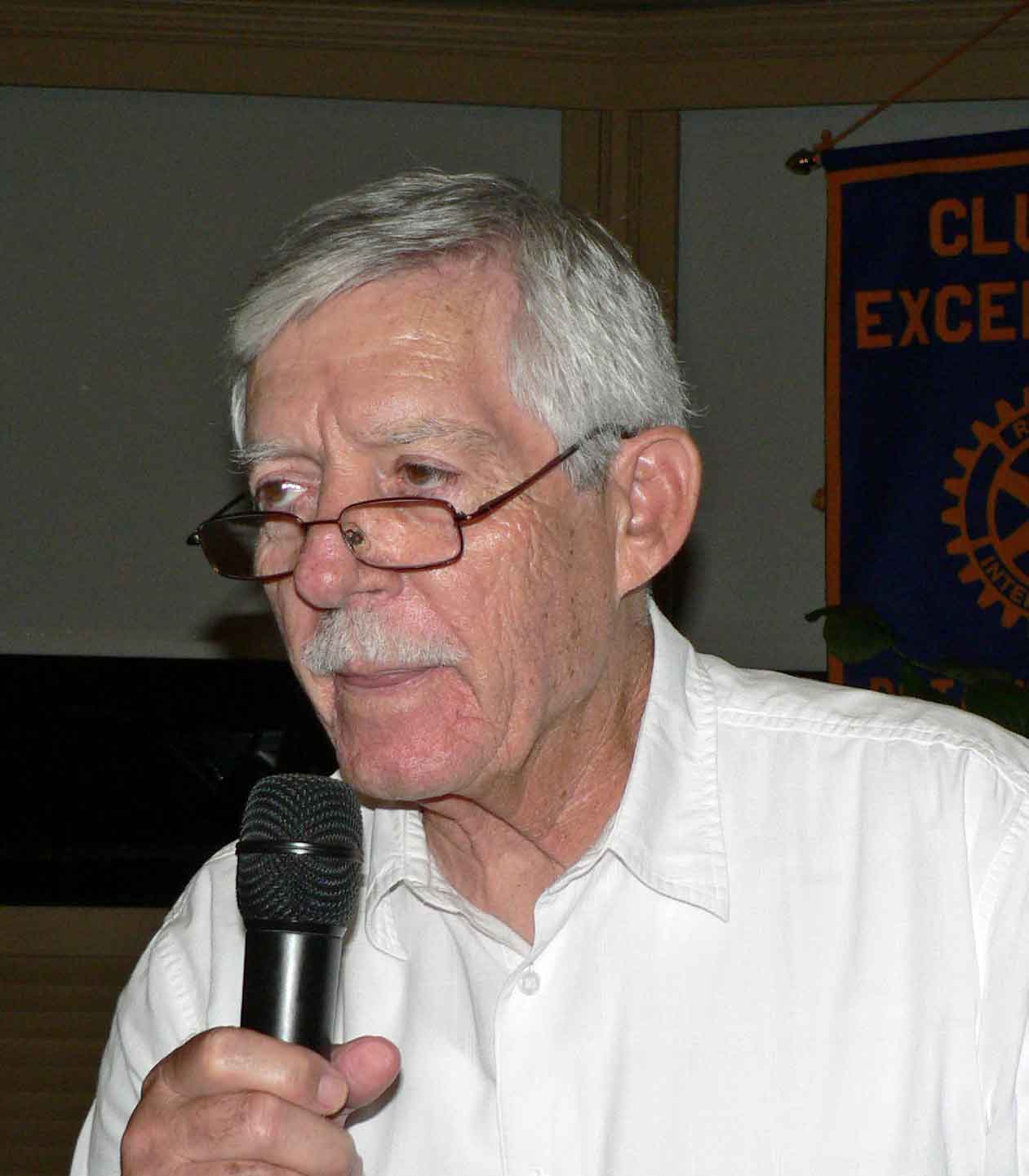History of Spies, by Joe Mardesich
Posted by Wes Bradford
on Sep 08, 2015

Joe Mardesich was the first college graduate in his family. At Dana Junior High School, he developed a love of teaching as a career. He attended Pepperdine and then CSU Long Beach, majoring in history and obtaining a Secondary-School Teaching Credential. He taught US and world history, government, economics, ESL and English, in Torrance, Los Angeles, Dana Junior High, and San Pedro High. He retired in 1994 but returned the next year as a substitute teacher for a teacher on maternity leave. Over the next 12 years, he filled in for 6 teachers who delivered 8 babies, becoming known as the “grandfather” of San Pedro High. He retired again in 2008. He has been giving presentations at the San Pedro Rotary Club and the Palos Verdes Speakers Forum on historical subjects.
 “Thucydides’ Trap” is the likelihood of a conflict between a rising power and a currently dominant power. He compared this to American power since World War II and the challengers including China as well as terrorist organizations. Countries need to work together to avoid the Thucydides Trap, and he used as an example current Chinese Pres Xi Jin-Ping who uses his country’s rising economic and military power to challenge US hegemony in Southeast Asia. The Chinese scholar Ye Zi-Cheng said if China does not become a world power, the rejuvenation of the Chinese nation will be incomplete. (China was often a major world power in ancient times.)
“Thucydides’ Trap” is the likelihood of a conflict between a rising power and a currently dominant power. He compared this to American power since World War II and the challengers including China as well as terrorist organizations. Countries need to work together to avoid the Thucydides Trap, and he used as an example current Chinese Pres Xi Jin-Ping who uses his country’s rising economic and military power to challenge US hegemony in Southeast Asia. The Chinese scholar Ye Zi-Cheng said if China does not become a world power, the rejuvenation of the Chinese nation will be incomplete. (China was often a major world power in ancient times.)Joe reviewed the history of spying in the US. John Walker spied for the KGB, first presenting himself to the Soviet Embassy in 1957, and continued transferring classified information by “dead drops” in Washington for 18 years before being caught (after his ex-wife turned him in). The technology of the F-35 fighter jet program, costing $1.4 trillion, was compromised. Glenn Shriver spied for China. Chinese cyber espionage (mostly of industrial technology) has become a major problem. “The Falcon and the Snowman” were code-names for aerospace spies living in Palos Verdes.
A great ancient commercial theft was of Chinese tea plants, taken by the British to their colony in India where they developed plantations to feed a profitable new tea culture in Europe. In return, they sent opium to China and managed to get commercial concessions in Hong Kong, which they ruled as a colony until 1997. Silkworms, vitrified porcelain (“china”) and gunpowder were other ancient examples taken from China. Coca-Cola’s formula is a modern trade secret (probably not much of a secret anymore).